- Global Komaba
- English
- Inbound to Komaba
- Study at Komaba
- Academic Program for Exchange Students
Global Studies in Asia Program(GSA)
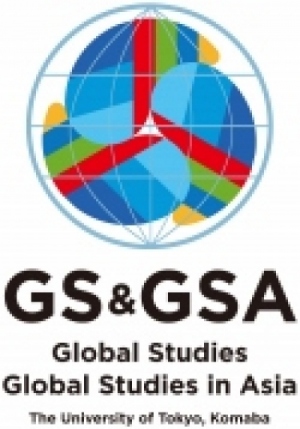
The Global Studies in Asia Program (GSA) provides a curriculum in English consisting of courses related to Japan. The Program, based at the Komaba Campus, is run by faculty members at the College of Arts and Sciences and is designed for international
students who are interested in learning about, experiencing, and analyzing Japan from a variety of perspectives. The program offers courses in a number of areas, including cultural studies, history, literature, geography, politics, peacebuilding and environmental
sciences. Students who register for the Global Studies in Asia Program will be given plenty of opportunities to interact with local students inside and outside of the classroom, especially students of the Global Studies Program (GS) which is the sister program
of GSA. Upon acquiring the required credits in language learning and specialized courses, GSA students will be awarded an official certificate of completion issued by the Dean of the Faculty of Arts and Sciences.
【Guidance of the GSA Program】
The guidance for 2025A Semester was held ONLINE as follows:
Date&Time: October 8 (Wed) 12:20 - 12:50
For those who could not attend or who missed part of the explanation, here are the presentation slides (in PDF):
Presentation Slides_GSA2025A
(available only through your UTokyo Account (ECCS account)
【Guidance of the GSA Program】
The guidance for 2025A Semester was held ONLINE as follows:
Date&Time: October 8 (Wed) 12:20 - 12:50
For those who could not attend or who missed part of the explanation, here are the presentation slides (in PDF):
Presentation Slides_GSA2025A
(available only through your UTokyo Account (ECCS account)
Eligibility and Registration
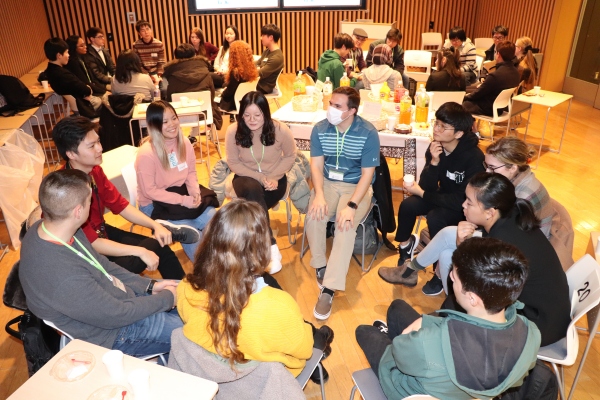
Only students enrolled in the University-wide Student Exchange Program (USTEP TypeU) or the College of Arts and Sciences Senior Division Exchange Program (KOMSTEP) are eligible to apply for the program.
【How to Apply】
Those who want to apply for the GSA program should follow the steps below:
1. Fill out the online form by Friday, October 31, 2025. (deadline for 2025A Semester to be announced soon)
2 . Register for courses required by the GSA program during the course registration period through the University of Tokyo Academic Affairs System (UTAS) or through the procedures indicated by the exchange program coordinators.
【How to Apply】
Those who want to apply for the GSA program should follow the steps below:
1. Fill out the online form by Friday, October 31, 2025. (deadline for 2025A Semester to be announced soon)
2 . Register for courses required by the GSA program during the course registration period through the University of Tokyo Academic Affairs System (UTAS) or through the procedures indicated by the exchange program coordinators.
- Please ensure to register for courses containing the titles “Seminar in Global Liberal Arts”, “Praxis in Global Liberal Arts” and “Lectures in Global Liberal Arts”. Some of these courses have multiple entry titles when listed on UTAS, but will only count towards the GSA program when registered as the appropriate title (see course title list below).
- Completing the online form and self-registering for GSA courses will automatically register students onto the GSA program.
Curriculum
Below are the courses offered in 2025A semester.All courses in the GSA Program are conducted as regular UTokyo courses and are therefore open to local students.
Most of them are offered in English, but there are also several courses conducted in other non-Japanese languages (marked with an ◆ on the list).
GS/GSA Courses of 2025A (October 2025 - February 2026)
| Course Title | Instructor | Subtitle | Day, Period | |
| グローバル教養実践演習(2)/
Praxis in Global Liberal Arts (2) |
小田 博宗
/ ODA Hiromune |
Advertising a Language:
How can we make our life and world better? |
火5 / Tue 5 | |
| グローバル教養特別講義 II/
Lectures in Global Liberal Arts II |
ROLAND Douglas | Psychology of Language | 水3 / Wed 3 | |
| グローバル教養特別講義 III (3)/
Lectures in Global Liberal Arts III (3) |
幕内 充
/ MAKUUCHI Michiru |
brain mechanisms of symbolic cognition | 水5 / Wed 5 | |
| グローバル教養特別演習 II (1) /
Seminar in Global Liberal Arts II (1) |
成田 大樹
/ NARITA Daiju |
Environmental Economics | 木1 / Thu 1 | |
| グローバル教養特別演習 II (2) /
Seminar in Global Liberal Arts II (2) |
GIRAUDOU Isabelle | Development and the Environment | 月4/ Mon 4 | |
| グローバル教養特別演習 II (3) /
Seminar in Global Liberal Arts II (3) |
前田 章
/ MAEDA Akira |
Mathematical optimization in Operations Research | 火2 / Tue 2 | |
| グローバル教養特別演習 II (4) /
Seminar in Global Liberal Arts II (4) |
キハラハント 愛
/ KIHARA-HUNT Ai |
United Nations Peace Operations - norms, evolution, achievements, challenges and future | 水2 / Wed 2 | |
| グローバル教養特別演習 II (5) /
Seminar in Global Liberal Arts II (5) |
BROWN Trent | Contemporary India | 月4/ Mon 4 | |
| グローバル教養特別演習 II (6) /
Seminar in Global Liberal Arts II (6) |
小川 啓一
/ OGAWA Keiichi |
Role of International Organizationsfor Education Development | 集中 / Intensive | |
| グローバル教養特別演習 II (7) /
Seminar in Global Liberal Arts II (7) |
KUHN Felix | Research Methods and Japanese Foreign Policy | 木2 / Thu 2 | |
| グローバル教養特別演習 II (8) /
Seminar in Global Liberal Arts II (8) |
高橋 史子
/ TAKAHASHI Fumiko |
Immigrants and Education in Multicultural Japan | 水4 / Wed 4 | |
| グローバル教養特別演習 II (9) /
Seminar in Global Liberal Arts II (9) |
KUHN Felix | Diplomacy: History and Practice | 金2 / Fri 2 | |
| グローバル教養特別演習 II (10) /
Seminar in Global Liberal Arts II (10) |
ROBERTS Mark | Contemporary Japanese Film and Anime | 火3 / Tue 3 | |
| ◆ | グローバル教養特別演習 II (11) /
Seminar in Global Liberal Arts II (11) |
李 英蘭
/ LEE Young-ran |
韓国の社会・文化に関する文学作品を読む | 金4 / Fri 4 |
| ◆ | グローバル教養特別演習 II (12)a /
Seminar in Global Liberal Arts II (12)a |
松田 葉月
/ MATSUDA Hazuki |
Seminario sobre Estudios Latinoamericanos | 木2 / Thu 2 |
| ◆ | グローバル教養特別演習 II (12)b /
Seminar in Global Liberal Arts II (12)b |
松田 葉月
/ MATSUDA Hazuki |
Seminario sobre Estudios Latinoamericanos | 木2 / Thu 2 |
| ◆ | グローバル教養特別演習 II (13) /
Seminar in Global Liberal Arts II (13) |
BELOUAD Chris | Écrire l’Histoire en France au XXe siècle | 水4 / Wed 4 |
| グローバル教養特別演習 II (14) /
Seminar in Global Liberal Arts II (14) |
中井 真木
/ NAKAI Maki |
The Story of Kimono: Fashion and Tradition | 月2 / Mon 2 | |
| グローバル教養特別演習 II (21) /
Seminar in Global Liberal Arts II (21) |
WOODWARD Jonathan | Chemistry For Environmental Sciences | 木3 / Thu 3 | |
| グローバル教養特別演習 II (22) /
Seminar in Global Liberal Arts II (22) |
内田 さやか
/ UCHIDA Sayaka |
Introduction to Inorganic Chemistry | 水3 / Wed 3 | |
| グローバル教養特別演習 II (23) /
Seminar in Global Liberal Arts II (23) |
山川隆、八村敏志、平山和宏、鈴木道生
/ YAMAKAWA Takashi, HACHIMURA Satoshi, HIRAYAMA Kazuhiro, SUZUKI Michio |
Food Safety and Risk Analysis | 火4 / Tue 4 | |
| グローバル教養特別演習 II (42) /
Seminar in Global Liberal Arts II (42) |
牛島 仁
/ USHIJIMA Hitoshi |
--- | 水4 / Wed 4 | |
| グローバル教養特別演習 II (43) /
Seminar in Global Liberal Arts II (43) | WAKEMAN Wiley | The Good Life | 火3 / Tue 3 | |
| グローバル教養特別演習 IV (1)/
Seminar in Global Liberal Arts IV (1) |
東 大作
/ HIGASHI Daisaku |
Challenges of Mediation and Peacebuilding: How to makea peace in the time of division
和平調停と平和構築の課題 ~分断の時代に、どう平和を作るのか~ |
(A2)
木4-5 / Thu 4-5 | |
| グローバル教養特別演習 IV (2)/
Seminar in Global Liberal Arts IV (2) |
勝又 幹英
/ KATSUMATA Mikihide |
スタートアップとヴェンチャーキャピタル:
Start-up and Venture Capital |
火2 / Tue 2 |
 The course information above and within the Academic Program is subject to change. Please make sure to check the latest information within UTokyo Academic affairs System (UTAS) and UTOL (UTokyo LMS).
The course information above and within the Academic Program is subject to change. Please make sure to check the latest information within UTokyo Academic affairs System (UTAS) and UTOL (UTokyo LMS).Credit Requirements for Completion of the Program
In order to complete the GSA Program, students must obtain the following credits by the end of their exchange period.- 6 credits from the following courses:
- Praxis in Global Liberal Arts
- Lectures in Global Liberal Arts I - III
- Seminar in Global Liberal Arts I - V - 6 credits from the Japanese Language courses offered at Komaba Campus
- The above are the minimum requirements. Students are welcome to take other courses offered at either the Komaba Campus or the Hongo Campus. However, only the courses listed above in 1 and 2 will be counted as credits for the GSA Program. Please note that some courses have enrollment restrictions and are not open to exchange students.
- Those wishing to take Japanese language courses offered at Komaba must have already completed the placement test. Students are allowed to take courses at their designated level.
- Students at a native or near-native level in Japanese (JLPT N1) can take any senior-division courses of the College of Arts and Sciences that are conducted in Japanese and eligible for exchange students, and have the credits counted towards the requirement 2) above. Please note that JLPT N1is required for taking courses taught in Japanese.
- Students can take the above courses in one semester or spread them out over two semesters, depending on their exchange periods.
- USTEP students entering in and after April 2025 must follow a new rule restricting their Japanese language courses up to 2 classes per week. If you wish to complete the GSA program in 1 semester, you need to get special permission from the USTEP office, Hongo for taking 3 Japanese classes per week. Please check the details on the USTEP Type U: Portal Site "④Restriction on Japanese Language Courses": https://sites.google.com/g.ecc.u-tokyo.ac.jp/ustep-typeu/courses/course-registration_1?authuser=0#h.yixwc2862kkx
Upon obtaining the required credits stated above, students registered to GSA will be awarded an official certificate of completion issued by the Faculty of Arts and Sciences. The certificates will be sent to the students upon return to their home university, after the grades have been posted and credits have been calculated.
FAQ
Q1:I will stay at UTokyo for 2 semesters, but I could not complete GSA’s requirements for the 1st semester. Can I continue to take GSA courses and enroll in the second semester?A1:Yes, there is no problem with doing that. You can take GSA courses in one semester or spread them over two semesters. You do not have to make the GSA enrollment again in the second semester.
Q2:I will stay at UTokyo for 2 semesters and I have finished the all GSA requirements at the 1st semester. May I get the GSA certificate while I am in Japan?
A2:The GSA certificate will be awarded after all of the results have come out. Therefore, the certificate will only be sent to your home university after you have completed all of the semesters at UTokyo.
Certificates will be delivered around April for students who finished their program at UTokyo after the A semester, and around September for those finishing after the S semester.
Q3:May I get the GSA certificate by data?
A3:No, in principle, you cannot get the certificate by data.
Q4:May I take Japanese language courses in Hongo Campus?
A4:The GSA program is run by faculty members at the College of Arts and Sciences, which is based on Komaba Campus.
You are welcome to take other courses offered at Hongo Campus but the credits of these courses do not meet the GSA requirements.
Messages from the Global Studies Committee
Enjoy meeting and studying with students from all over the world!
Tomofumi KITAMURA
Professor
Director of the Global Studies Committee
The College of Arts and Sciences
The University of Tokyo
Tomofumi KITAMURA
Professor
Director of the Global Studies Committee
The College of Arts and Sciences
The University of Tokyo
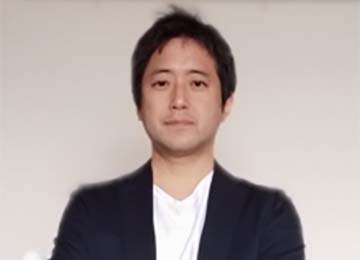
Study and have fun together here in Komaba.
Our students are thrilled to meet you!
Yuki HIROSE
Professor
S-Semester Vice Director of the Global Studies Committee
The College of Arts and Sciences
The University of Tokyo
Our students are thrilled to meet you!
Yuki HIROSE
Professor
S-Semester Vice Director of the Global Studies Committee
The College of Arts and Sciences
The University of Tokyo
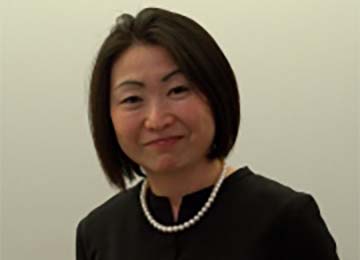
Explore the world and map your future in Komaba!
Takashi ODA
Associate Professor
A-Semester Vice Director of the Global Studies Committee
The College of Arts and Sciences
The University of Tokyo
Takashi ODA
Associate Professor
A-Semester Vice Director of the Global Studies Committee
The College of Arts and Sciences
The University of Tokyo
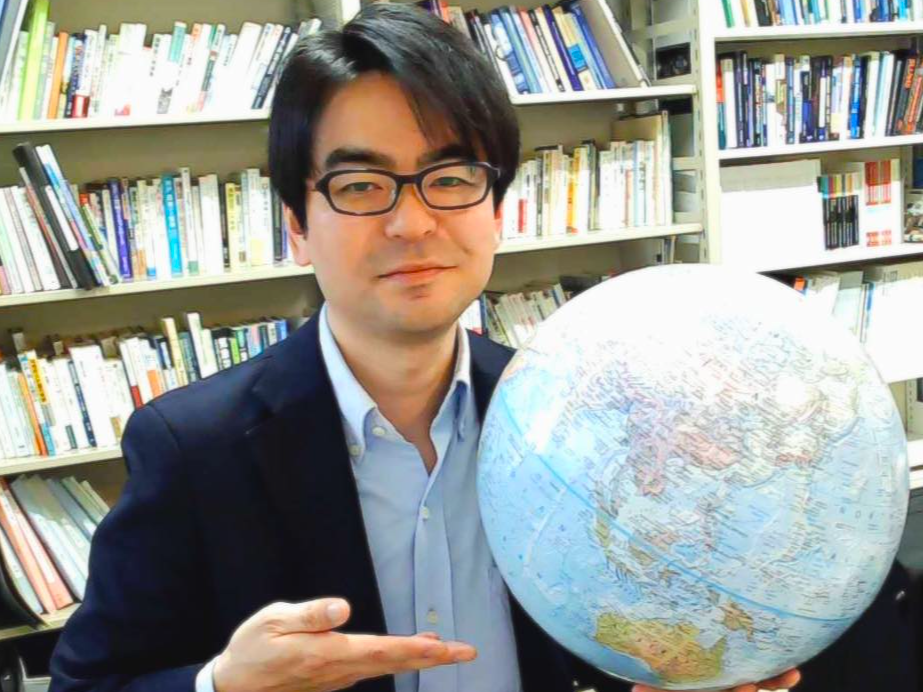
Komaba is bigger than you think. As big as the World? Perhaps!
Yoshiaki MIHARA
Associate Professor
Member of the Global Studies Committee
The College of Arts and Sciences
The University of Tokyo
Yoshiaki MIHARA
Associate Professor
Member of the Global Studies Committee
The College of Arts and Sciences
The University of Tokyo
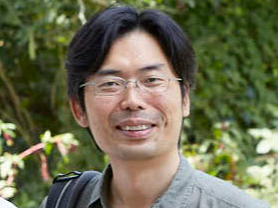
GS Student Staff Members

The GS Student Staff Members are employed to support events organized by the GS/GSA program committee. In addition, they planned and hosted regular Lunchtime Gatherings and a Gathering Event in the evening for international and Japanese students during
2025a Semester.
Thank you very much to Misaki, Nayoung, Seiji, Yuina and Yuxin for your contributions! You did a great job working in an international team and offered many exchange opportunities for students on Komaba campus.
Thank you very much to Misaki, Nayoung, Seiji, Yuina and Yuxin for your contributions! You did a great job working in an international team and offered many exchange opportunities for students on Komaba campus.
As a student staff member who has worked for the GS/GSA program for over one year, I have realized how important this program is, as it gives local students and international students a chance to interact with each other and learn about different cultures. As a student, not only as a staff member, I also really appreciate this opportunity to learn how to work with people from different backgrounds and to become more inclusive. (YZ's comment)
As a GS student staff member, I had many opportunities to be involved in planning and running events that encouraged interaction between Japanese and international students. I took on roles such as moderating lunchtime gatherings, supporting evening events, and helping shape new ideas for student交流 activities.
Before starting, I was honestly a little nervous about taking on these responsibilities, especially since many of the roles required communication, coordination, and speaking in front of others. However, throughout the semester, I received a great deal of support from fellow student staff members and from Seiko-san and other staff in the GS team. Thanks to this supportive environment, I felt comfortable trying new things, asking questions, and gradually gaining confidence.
Through this experience, I was able to see myself learning and improving - not only in event planning and moderation, but also in teamwork and cross-cultural communication. Being part of GS student staff was a valuable and encouraging experience that helped me grow both personally and academically. (NK's comment)
GSスタッフとしての活動はとても貴重な経験になりました。何か新しいことをしたいと思い始めた活動でしたが、最初は英語にも自信がなく、不安でいっぱいでした。しかし先生やスタッフメンバーの優しさとあたたかさに支えられ、楽しくイベント運営を行うことができました。イベントの中で参加者の皆さんが笑顔で会話し、コミュニケーションの輪を広げていく姿を見るのも嬉しかったです。また自分自身も多様なバックグラウンドを持つ人と多く関わることができ、興味深いお話しがたくさんできました。
初対面の人と英語でコミュニケーションをする、となると遠慮してしまう人もいるかもしれませんが、GSのイベントは参加者全員をあたたかく迎えてくれる素敵なものばかりです。ぜひより多くの人に気軽に参加してほしいと思います! (YN's comment)
Events during 2025S
Lunchtime Gatherings during 2025S /
Apr 17 Online Gathering
May 9 Experiencing ZAZEN Meditation
May 13 Evening Gathering “RANDOM! Kitchen”
Jun 19 Lecture&Get-together “Intersectionality in Japan”
Events during 2024S/A
Lunchtime Gatherings during 2024S / 2024A
Apr 11 Online Gathering
Apr 25 Letting Sakura Go
May 9 Experiencing ZAZEN Meditation
Jun 24 Lecture “Australian Multiculturalism Today”
Jul 4 GSI-Wings Lecture “Political Cartoon beyond Nationalism: The Representation of the Occupied Palestine in the Works of Naji al-Ali (1983-1987)” on Zoom
Oct 10 Lecture “The Battle for Ukraine’s History”
Oct 16 Online Gathering
Nov 07 Experiencing ZAZEN Meditation
Dec 05 Trivia Night !
Dec 10 GSI-Wings Lecture “Introduction to Art and Experimental Film: American Avant-Garde and Psychedelic Films” on Zoom
Dec 17 GSI-Wings Lecture "Rethinking the Origin of Welfare State: Malthusianism and the Right to Subsistence in Postwar Japan " on Zoom
Jan 08 Experiencing Japanese Tea Ceremony SADOU
Jan 10 Students' Presentations "Japan and the Pacific Ocean"
Jan 15 GSI-Wings Lecture "Art Using Living Organisms and Ethics”
Jan 20 Lecture “Hate Speech and Fake News: How Far should the Law Go?”
Events during 2023S/A
Lunchtime Gatherings during 2023S / 2023A
Apr 20 Open Chat Forum on Zoom
May 18 Experiencing ZAZEN Meditation
Jun 30 "Leading through Change: Conversation with a Maasai Elder" on Zoom
Jul 13 "Exploring TOKYO" English Documentary Film Festival
Oct 18 Online Gathering
Nov 02 Experiencing ZAZEN Meditation
Nov 30 Game Night
Dec 05 Lecture "Making Sense of Interpretation that Makes Sense"
Dec 15 Lecture "How do Countries Respond in Times of Economic Security Crises?" on Zoom
Jan 10 Experiencing Japanese Tea Ceremony SADOU
Jan 15 Lecture "What Makes a Sentence Easy or Difficult to Comprehend?" on Zoom
Jan 19 Students' Presentations "Japan and the Pacific Ocean"
Feb 16 Lecture "How Do Second Language Learners Acquire Grammar?" on Zoom
Globalization Office, 21KOMCEE West B1F
The University of Tokyo, KomabaⅠCampus
gs-gsa[at]global.c.u-tokyo.ac.jp